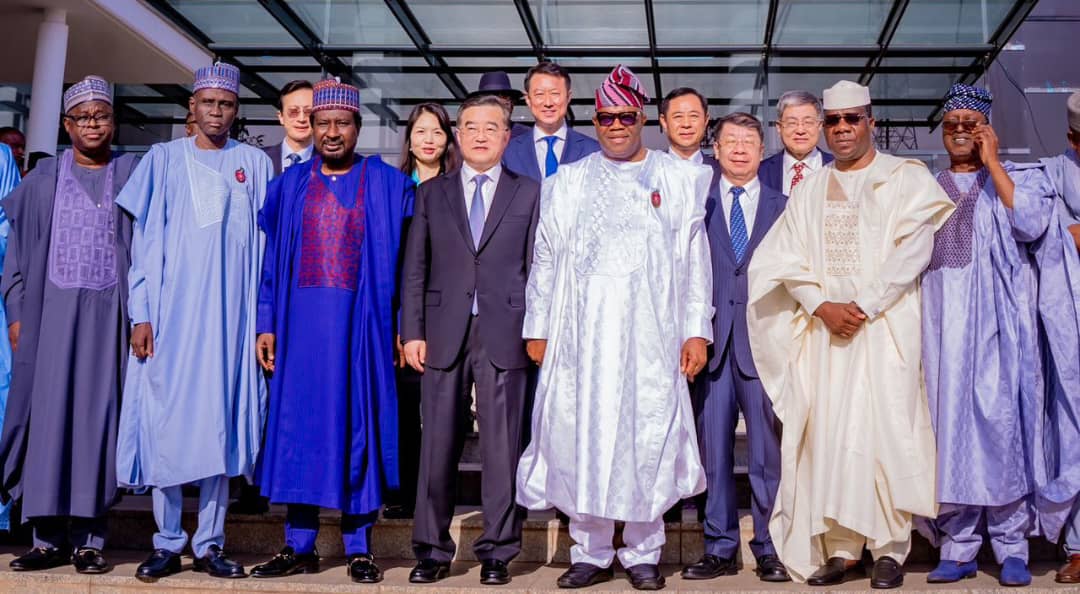Policymakers in Nigeria’s oil-producing states have advocated collaborations among states in the Niger Delta region to achieve energy transition from fossil fuel to renewable energy.
The policymakers, mainly government officials across the nine oil-producing states, made the advocacy at a two-day regional stakeholders’ dialogue on strengthening subnational fiscal resilience for energy transition held Thursday and Friday in Uyo, Akwa Ibom State.
Hosted by a non-profit organisation, Policy Alert, in partnership with the Natural Resource Governance Institute (NRGI) and BudgIT Foundation, the dialogue brought together government officials, civil societies, community leaders, and young people to discuss the challenges and opportunities presented by the global energy transition.
Energy transition
Fossil fuel, a term used to describe non-renewable energy sources like crude oil and petroleum products, is the main revenue source for the Niger Delta states.
Burning of fossil fuels, for instance, gas flaring in the Niger Delta region, releases a large amount of carbon dioxide, a greenhouse gas, into the air, which traps the heat in the atmosphere resulting in global warming.
The Intergovernmental Panel on Climate Change (IPCC) has found that fossil fuel emissions are the dominant cause of global warming and that 89 per cent of global carbon dioxide emissions came from fossil fuels and industry in 2018.
Nigeria’s main crude oil buyers, including the United States, France, and India, are adopting an energy transition, gradually shifting from fossil fuels to renewable energy sources to reduce greenhouse gas emissions and mitigate climate change.
Nigerians need credible journalism. Help us report it.
Support journalism driven by facts, created by Nigerians for Nigerians. Our thorough, researched reporting relies on the support of readers like you.
Help us maintain free and accessible news for all with a small donation.
Every contribution guarantees that we can keep delivering important stories —no paywalls, just quality journalism.
This move may reduce their demand for crude oil and cause Nigeria revenue loss.
The panellists on energy transition, who focused on strengthening government response to the global energy paradigm, agreed that transitioning from fossil fuels to renewables was possible but would require collaboration among member states because of the huge investment it required.
They highlighted key revenue chains adopted by member states in the region to boost revenue.
The panellists included Gills Harry, Deputy Director of the Rivers State Auditor-General’s Office; Emeka Okonkwo, Deputy Director of Budget in Delta State; Razaq Fatai, Chief Data Officer of the Nigeria Governors Forum Abuja; and Ekemini Effiong, Deputy Director of the Budget Office in Akwa Ibom State.
States in the Niger Delta region, except Rivers, depend on federal allocations to fund their budget, particularly recurrent expenditures.
Responding to a question on Rivers State’s increased revenue base, Mr Harry attributed it to Governor Siminalayi Fubara, whom he said has blocked revenue leakages since coming into office.
Mr Harry said revenue collection in the oil-rich state is now done online, a gesture he urged other states in the region to emulate. He said this strategy will block leakages and reduce wastage.
Policy Alert urges states to act on debt reduction
Meanwhile, the event host Policy Alert has appealed to states in the region to reduce their debt appetite and diversify into non-oil revenue sources as a strategy for fiscal resilience given the energy transition.
Policy Alert’s focal area is working for improved development outcomes in the areas of economic governance, environmental justice, and agrarian livelihoods.
 Participants at the event
Participants at the eventThe group, in a statement sent to PREMIUM TIMES after the event, said the dialogue highlighted the fiscal vulnerability of states in the region and explored strategies for diversifying state economies, reducing public debt, strengthening fiscal transparency and accountability, and empowering civil society and youth to participate in decision-making processes to build resilience.
“Considering the shrinking fiscal wiggle room that the energy transition may initiate, states of the Niger Delta region must be cautious about piling on more debt,” Edidiong Dickson, programme officer, Policy Alert, said in the statement.
In her presentation, Programme Officer at the Natural Resource Governance Institute, Tengi George-Ikoli, outlined the need for Nigeria, particularly oil-producing states in the Niger Delta, to respond to the global shift from fossil fuels and implement various initiatives targeted at stimulating economic growth and social development to build fiscal resilience.
Felicia Dairo, project manager at the Centre for Journalism Innovations and Development, presented a paper titled “From Boom to Bust: Social Imperatives of Fiscal Resilience on Oil-Producing States.”
According to her, Nigeria’s oil reserves are significant enough to make the country’s economy dependent on oil. Still, its oil wealth is not significant enough to afford Nigeria the ability to dictate terms to the international oil markets.
She cited countries like Saudi Arabia, which, due to its oil wealth, wields negotiating power in the international oil market.
The dialogue also featured the launch of a handbook, Strengthening Fiscal Resilience to Minimise the Impact of the Energy Transition, and the formulation and adoption of actionable recommendations for the states in the Niger Delta to build fiscal resilience in the face of a changing energy landscape.
Support PREMIUM TIMES' journalism of integrity and credibility
At Premium Times, we firmly believe in the importance of high-quality journalism. Recognizing that not everyone can afford costly news subscriptions, we are dedicated to delivering meticulously researched, fact-checked news that remains freely accessible to all.
Whether you turn to Premium Times for daily updates, in-depth investigations into pressing national issues, or entertaining trending stories, we value your readership.
It’s essential to acknowledge that news production incurs expenses, and we take pride in never placing our stories behind a prohibitive paywall.
Would you consider supporting us with a modest contribution on a monthly basis to help maintain our commitment to free, accessible news?
TEXT AD: Call Willie - +2348098788999

 3 hours ago
2
3 hours ago
2













